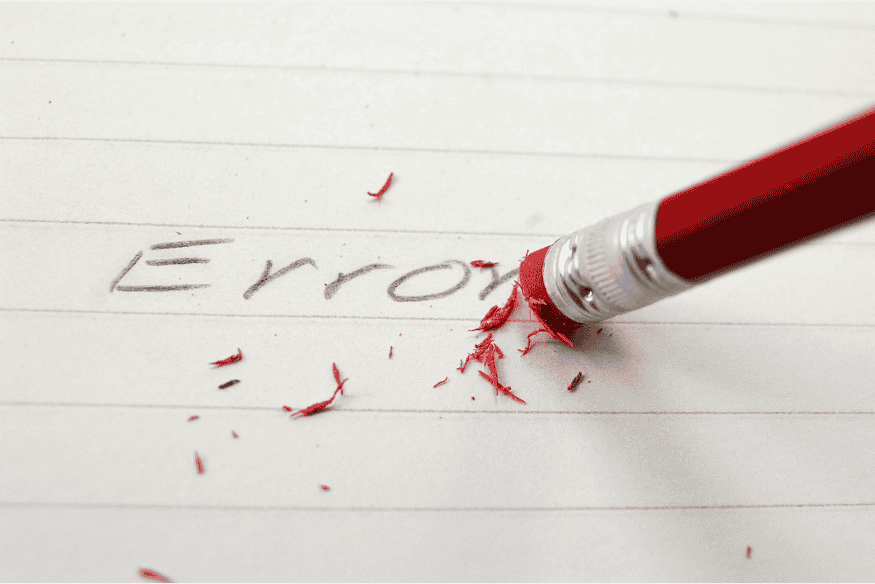Your financial health is closely tied to your credit score, which is determined by your credit history. This report is one of the primary documents reviewed by lenders to decide whether to extend credit to you and, if so, under what terms. Understanding your credit report is essential for making smarter financial decisions and securing better borrowing opportunities.
By understanding your credit report, you can pinpoint areas to improve and take action to boost your credit score. This guide will explain why knowing your credit report is crucial, the benefits of maintaining a healthy one, and how you can monitor it to ensure it accurately reflects your financial health.
Key Takeaways
Your credit history is a key part of your financial health.
Understanding your credit history helps you make smarter financial choices.
A positive credit report can lead to better loan terms and lower interest rates.
Improving your credit score requires fixing issues found in your report.
Regularly monitoring your credit report is essential for maintaining financial health.
What Is a Credit Report and Why It Matters
A credit report is a detailed record of how you manage your financial affairs. It includes information about your credit accounts, payment history, outstanding debts, and other financial details. It is a key part of your financial story, reflecting how well you handle credit and repayment.
Credit reports are checked by lenders, landlords, and even some employers to assess your reliability and financial stability. It’s a critical tool that can influence your ability to obtain loans, credit cards, or even rental housing. Keeping a good credit report opens doors to better financial opportunities and ensures stability in your financial life.
The Role of Credit Reports in Your Financial Life
Credit reports play an essential role throughout your financial journey. They are used by banks, financial institutions, and rental agencies to assess the risk involved in lending you money or providing services. A good credit report can result in lower interest rates, better credit offers, and greater access to loans.
On the other hand, a poor credit report can make it difficult to obtain credit, with higher interest rates or outright loan rejection. Therefore, maintaining an up-to-date and healthy credit report is essential for ensuring you have access to financial opportunities in the future.
How Credit Information Is Used by Banks and Financial Institutions
When a bank or financial institution decides whether to approve credit, one of the first things they do is check your credit report. This allows them to assess the risk of lending to you, which helps them determine appropriate terms, such as interest rates and credit limits.
Your financial behavior over time has a significant impact on how these institutions perceive your risk. Timely payments and responsible debt management can lead to better offers, while late payments or defaults can affect your creditworthiness.
The Impact of Negative Marks on Your Credit Report
Negative marks, such as late payments or bankruptcy filings, can harm your credit score and impact your chances of getting approved for new credit. Even a single missed payment can have a lasting effect on your report, leading to higher interest rates and less favorable credit conditions.
However, negative marks don’t last forever. Depending on the laws of your country, these entries can be removed after a specific period. While they are present, they can affect your credit score, so it’s important to address them as quickly as possible.
How to Obtain Your Credit Report

Getting access to your credit report is simple and can be done through various channels, including credit bureaus and digital banking services. It’s recommended to check your report regularly to monitor for errors or negative marks that could harm your score. Credit reports typically include information about your credit accounts, loans, credit cards, and any missed payments.
If you find any errors or outdated information on your report, it’s important to correct them as soon as possible. You can do this by contacting the credit reporting agency or requesting an update.
Why and How Often You Should Check Your Credit Report
Regularly checking your credit report is one of the best ways to ensure it reflects your current financial status. By monitoring your report, you can quickly spot errors, incorrect information, or even signs of identity theft. The sooner you identify a mistake, the easier it is to correct it and prevent further damage to your credit score.
While there is no set rule for how often you should check your report, it is advisable to do so at least once a year. If you’re planning to apply for credit, it’s a good idea to review your report a few months in advance to ensure there are no surprises.
Key Components of a Credit Report
Your credit report is made up of several key elements that help determine your creditworthiness. Understanding these components is essential for managing your finances effectively and ensuring you have a healthy credit score.
Personal Information and the Importance of Accuracy
The report begins with your personal information, such as your name, address, and identification number. It’s crucial to review this section for accuracy, as any discrepancies can affect your score and lead to issues when applying for credit. Make sure your details are correct and up-to-date to avoid complications.
Credit Accounts and Payment History
Your credit accounts, such as credit cards and loans, are one of the most important parts of your report. The payment history section shows whether you’ve been making payments on time. Timely payments have a positive impact on your score, while late or missed payments can hurt it.
Common Credit Report Errors and How to Fix Them

Errors on your credit report can be damaging to your finances. It’s important to know how to spot and fix them. Start by checking for incorrect personal information, accounts that don’t belong to you, or errors in your payment history. If you find any mistakes, contact the credit reporting agency to request corrections.
Understanding Payment Defaults and Their Effects
Payment defaults are one of the most damaging things to your credit report. They indicate that you have failed to meet your financial obligations, and they can remain on your report for a certain period. These marks can significantly raise your interest rates and make it harder to get approved for future loans.
If you have a payment default on your report, it’s crucial to rectify the situation as soon as possible. Paying off overdue debts and ensuring all future payments are made on time will help to remove these negative marks from your credit report.
How to Handle Credit Inquiries and Their Implications
There are two types of credit inquiries: hard and soft inquiries. Hard inquiries happen when you apply for a loan or credit, and they can negatively affect your credit score. Soft inquiries occur when you check your own report or when a company checks your credit for marketing purposes, and they do not impact your score.
Understanding the impact of these inquiries is important, as applying for credit frequently can lower your score. Always be strategic when applying for new credit.
How to Improve Your Credit Score and Financial Situation
Now that you understand the key components of your credit report, let’s look at strategies to improve your credit score and overall financial health. Here are some key tips for maintaining a good credit score and building a stronger financial foundation:
Timely Payments
Paying your bills on time is one of the most important factors in maintaining a good credit score. It shows that you are responsible with your credit and can handle debt. Set up reminders or automatic payments to ensure you never miss a payment.
Responsible Debt Management
Avoiding the accumulation of debt is another key strategy for improving your credit score. Managing your existing debt responsibly by keeping your credit utilization ratio low and avoiding new debt can have a positive effect on your score. Debt consolidation is also a helpful strategy if you’re dealing with high-interest debt.
Building Healthy Financial Habits
Developing long-term financial habits, such as budgeting and using credit wisely, is essential for maintaining good credit health. By keeping track of your income and expenses, you can avoid overspending and ensure you’re living within your means.
Take Control of Your Financial Future
Understanding your credit report and regularly monitoring it is the key to financial health. By following the tips in this article, you can increase your credit score and improve your chances of being approved for loans or credit cards. Good credit management involves checking your report regularly and ensuring that it is accurate. It also means making wise financial decisions. By taking control of your credit today, you can build a strong financial future.









